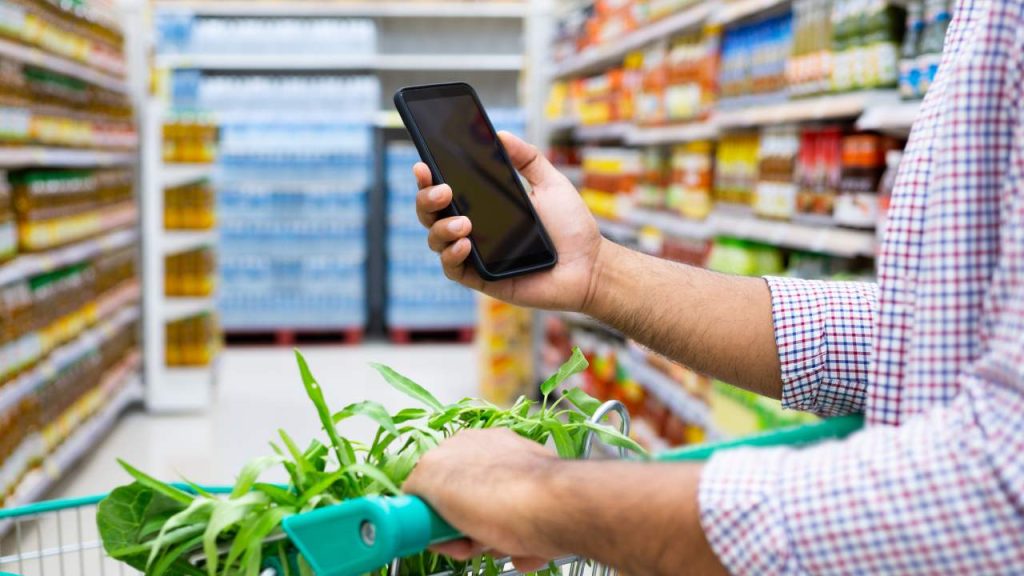
Could it be said that you are continually looking at your telephone when you’re and about? Do you experience difficulty opposing the draw of always screen time? Provided that this is true, be cautious when you go shopping for food – as your telephone might be setting you back more than you naturally suspect.
By and large, 41% more than the people who don’t.
This might sound illogical. Beforehand, numerous blocks and-mortar retailers have viewed customers’ cell phones as an interruption – or more terrible. They stressed that clients who focused on their telephones invested less energy taking a gander at captivating item shows in the store, or could utilize their telephones to look for more ideal arrangements on the web.
To see whether these feelings of trepidation were legitimate (explicitly when individuals go shopping for food) a group of specialists led a trial. We put unique eye-following glasses on in excess of 400 customers, who then approached their shopping to the surprise of no one.
The glasses permitted us to see unequivocally the thing the customers were doing when they were shopping – and what they checked out. A portion of the members were urged to utilize their cell phones, while some were requested to take care of them for the span from their shopping trip.
It worked out that the impact is at last something contrary to what we could have thought. Customers who actually look at their telephone while shopping spent on normal 41% more at the till – and those individuals who utilized their telephones the most likewise would in general spend the most cash.
Inside a customers’ psyche
The justification for this lies in the manner the human cerebrum works when we are shopping – and the huge measure of decisions on offer.

Indeed, even a little supermarket might keep 10,000 extraordinary items in stock, while enormous stores stock ordinarily that. It is unimaginable for the human brain to process and pick between this multitude of accessible things intentionally. We can’t adapt to this large number of choices, and that implies our minds are attempting to work on the intricacy of a supermarket in various ways.
One way is to enact a sort of inside autopilot, which goes about as a sort of shopping script, recommending what we do and find in the store. Basically, this implies that most customers typically go to the racks and areas they generally go to, and purchase similar items over and over.
Say, for instance, that you routinely purchase milk, chicken and bananas. Your inward autopilot will lead you between the focuses in the store where you realize these things have a place.
Essentially, in the event that you are preparing nourishment for a work day supper, you might have an internal content of what items ought to be in that. Items that are not piece of that content are most frequently sifted away by your cerebrum as superfluous data.
All things considered, how could you be keen on taking a gander at baking items when you are arranging a fast shop for a sautéed food, prior to returning home following a monotonous day at work? This large number of items we don’t intentionally see don’t have a possibility of getting into the shopping bushel. The cruel truth is that customers are extremely constant animals – the majority of us shift our basic food item buys between less than 150 items per year.
Cell phone interruptions
In any case, something else happens when we get our telephones. Whether it’s to settle on a decision, send an instant message, check virtual entertainment or peruse places to get-away, our psyches are compelled to change our exceptionally restricted consideration limit from the shopping undertaking to the telephone.

As consideration is occupied, the manner in which customers act in the store radically changes. They abruptly walk all the more leisurely and in capricious examples, meandering along the paths.
They carve out themselves spending greater opportunity in the store, and turning out to be more responsive to viewing at a more extensive variety of items as the autopilot has been intruded. This implies they (you) are less inclined to channel off data with respect to items outside the ordinary content and more prefer to be enlivened to purchase a greater amount of them.
Basically, customers who take a gander at their telephones invest more energy in the store, take a gander at additional items, and purchase more things. This isn’t really something terrible, as you might be reminded to purchase items that are required at home that were not on your psychological shopping list – or you might be enlivened to attempt another fixing.
In any case, in the event that you are aware of adhering to your shopping plan and financial plan, keeping your telephone in your pack or pocket might be ideal. Recall that an internet based cordial store – with free wi-fi or cell phone docking stations on streetcar handles – may basically be landing you with a greater shopping bill.

